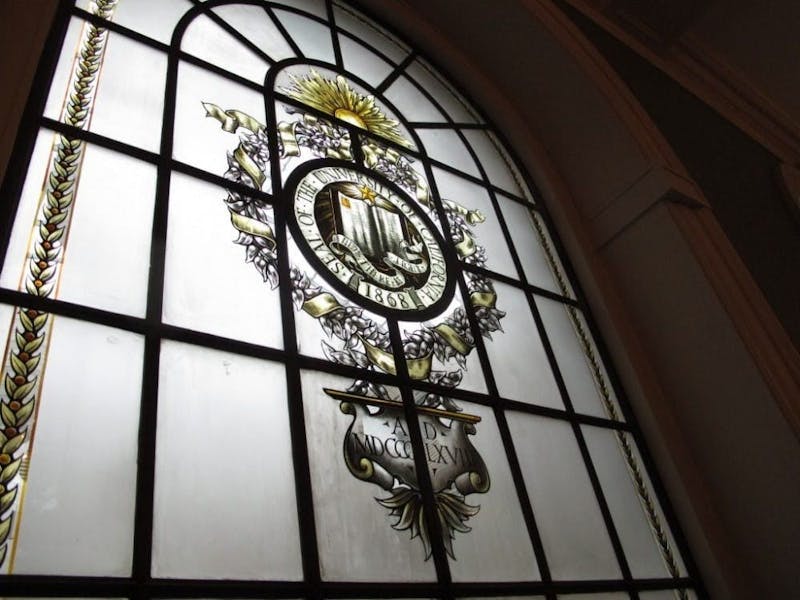
FILE PHOTO
The Life Design Lab aims to offer advice to freshmen to guide them on choosing the best-suited clubs and getting involved with University life.

FILE PHOTO
The Life Design Lab aims to offer advice to freshmen to guide them on choosing the best-suited clubs and getting involved with University life.
There’s an aura of mysticism that comes with arriving at Hopkins as a first-year student. There’s a significant chance that your perspective as an incoming student is informed by collegiate ranking websites, media reports on our coronavirus tracking capabilities and general appreciation of how great our hospital is. Without being here, it is very easy to succumb to the stereotypes about our school and the people who go here.
The stereotypes about the University are so pervasive to the point that almost every one of us arrived in Baltimore with the same idea of how things were about to unfold. However, the thing about stereotypes is that they’re often untrue. Now that I’m a senior, I feel as though I’m more than prepared to dispel some of the misconceptions about attending Hopkins. The Hopkins experience is by no means a monolithic one. This is something we all figure out; I’m here to help expedite the process.
There is an immediate pressure that comes with (virtually) stepping onto the campus of a high-level academic institution. You have the sneaking suspicion that the person next to you has a meticulous plan set out for the next four years or so and that they intend to stick to it.
However, this could not be further from the case. Sure, some of your peers will somehow stick to their major forever without any shift in their first plan. But it is perfectly normal to arrive on campus and realize your original path is completely wrong for you.
Take my own story for example. During my freshman year, I arrived with an intense urge to study Environmental Engineering after attending a STEM magnet school for half of high school. About two months into the semester, I realized that there was nothing for me in the realm of engineering, let alone the environmental track. Now, I am happily settled at the other end of the academic spectrum, finishing up degrees in both English and Psychology.
This is all to say that it’s perfectly okay to take the time to figure out the path that is right for you. You’re not going to get through your first week of classes and think, “This is what I want to do with the rest of my life.” And that’s okay. I promise.
Now, the atmosphere of a pre-med centered campus comes with its own set of negative stereotypes. The most salient is the perception of a competitive environment where everyone is competing for a finite amount of spots in graduate programs and will do anything for their slice of the pie. Horror stories of students refusing to explain problems and sabotaging the work of others ramble in the mind of prospective students.
I can’t speak to the actions of certain people, because it’s perfectly fair to attribute these instances to my favorite phrase — some people suck. But from my experience, Hopkins is a difficult school. Everyone here understands that. What I’ve found is that your classmates are often more than willing to meet up and study with you or discuss what’s going on in class. There is no shortage of people who recognize the academic pressures that Hopkins places on everyone and are therefore happy to help in whatever way they can.
We’ve all heard the stories from people we know about staying up until 4 a.m. to complete research assignments or lab reports. These anecdotes are meant to convince you that unless you’re working around the clock to finish your work, you’re going to drown in your studies.
This stereotype is really only half true. Yes, you need to work hard to manage your time and be prepared for exams and class discussions. But there are too many hours in the week to dedicate them all to burying your face in your laptop screen. There is a ridiculous amount of extracurricular activities that are available. From your friends at The News-Letter, varsity and club sports, and numerous cultural organizations, many of your peers figure out that there are plenty of ways to spend your time.
Now, being online for this semester presents some new interesting challenges. But it is important to remember to take a break every once in a while. Go for a walk after you are done with your classes for the day. Maybe take up journaling or a new artistic passion. Join The News-Letter! These activities are not merely time-wasters to get through the day — they are meaningful and help you become more well-rounded as a person. I can promise you that there will be time for activities outside of your studies. Let me assure you that your time at Hopkins will not run on a preordained path based on stereotypes, but solely on your own personal choices.